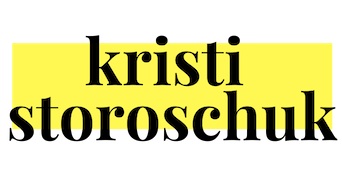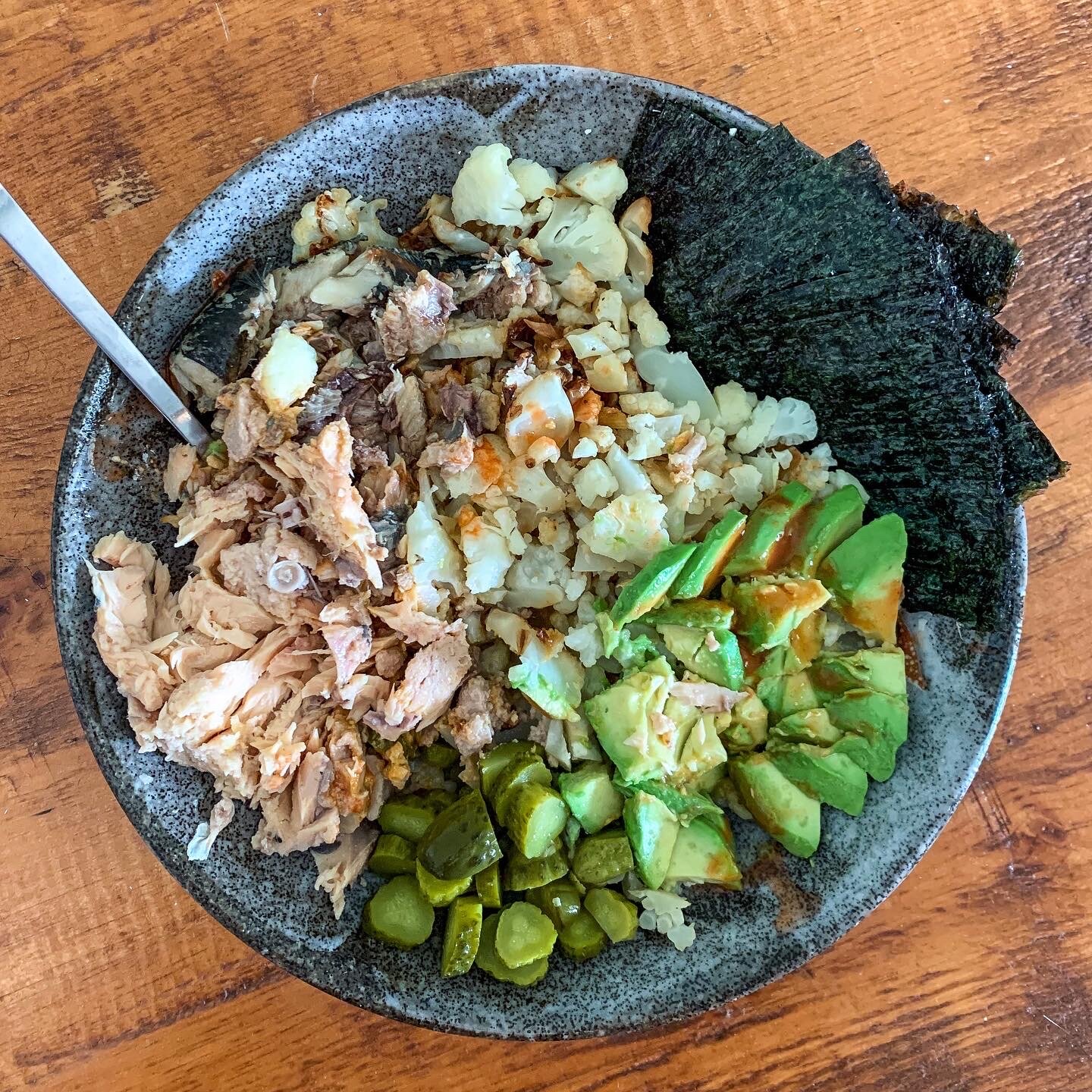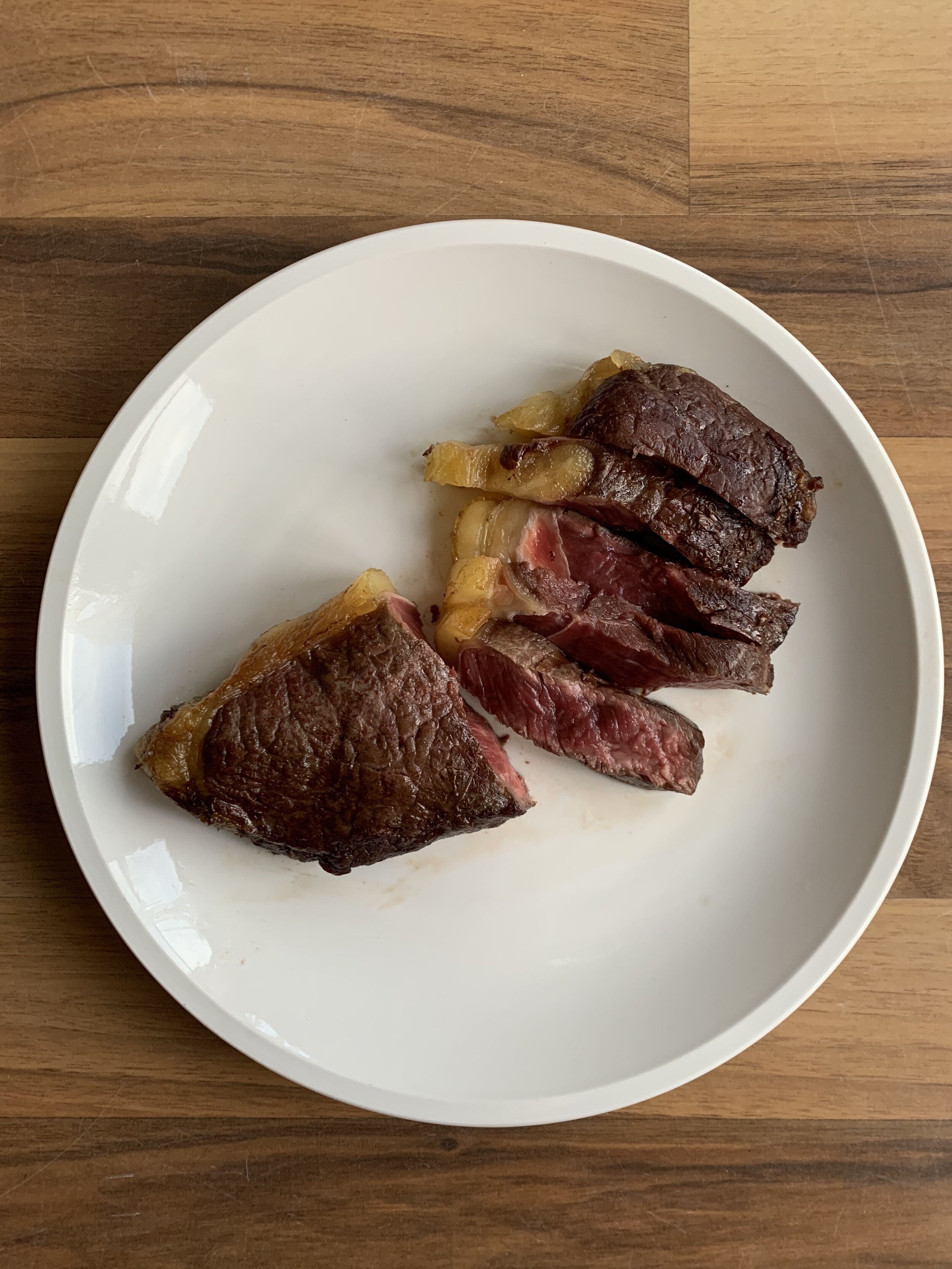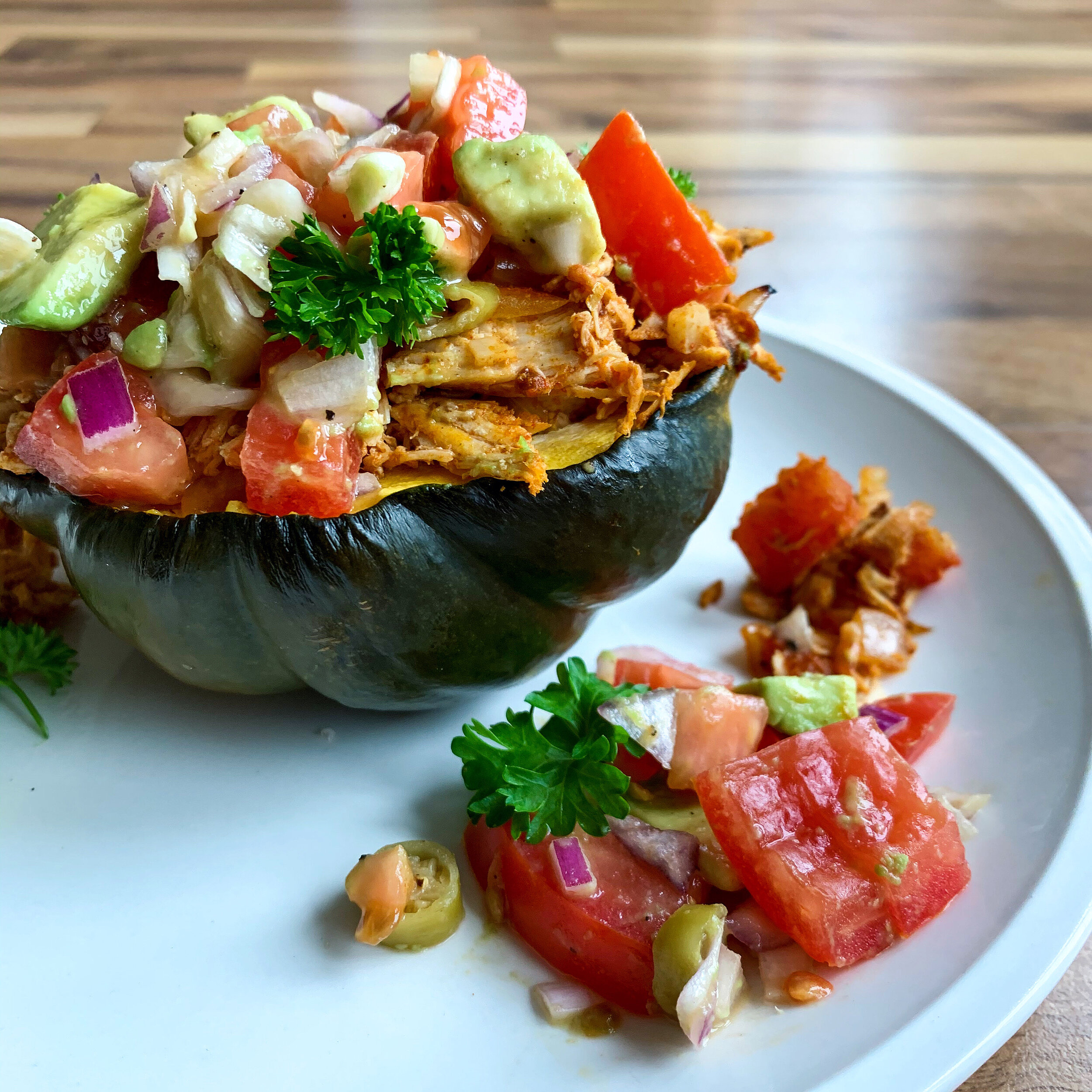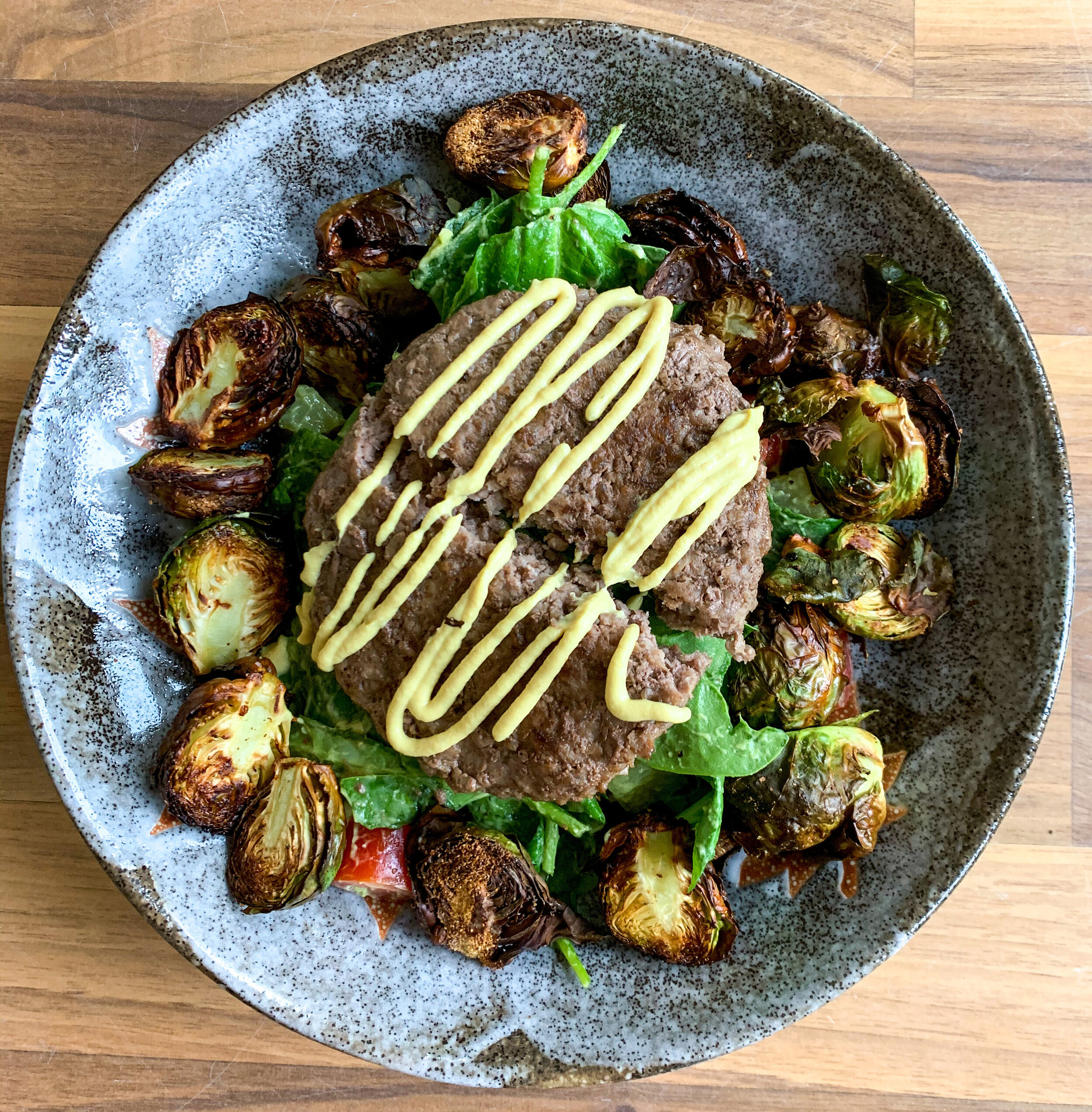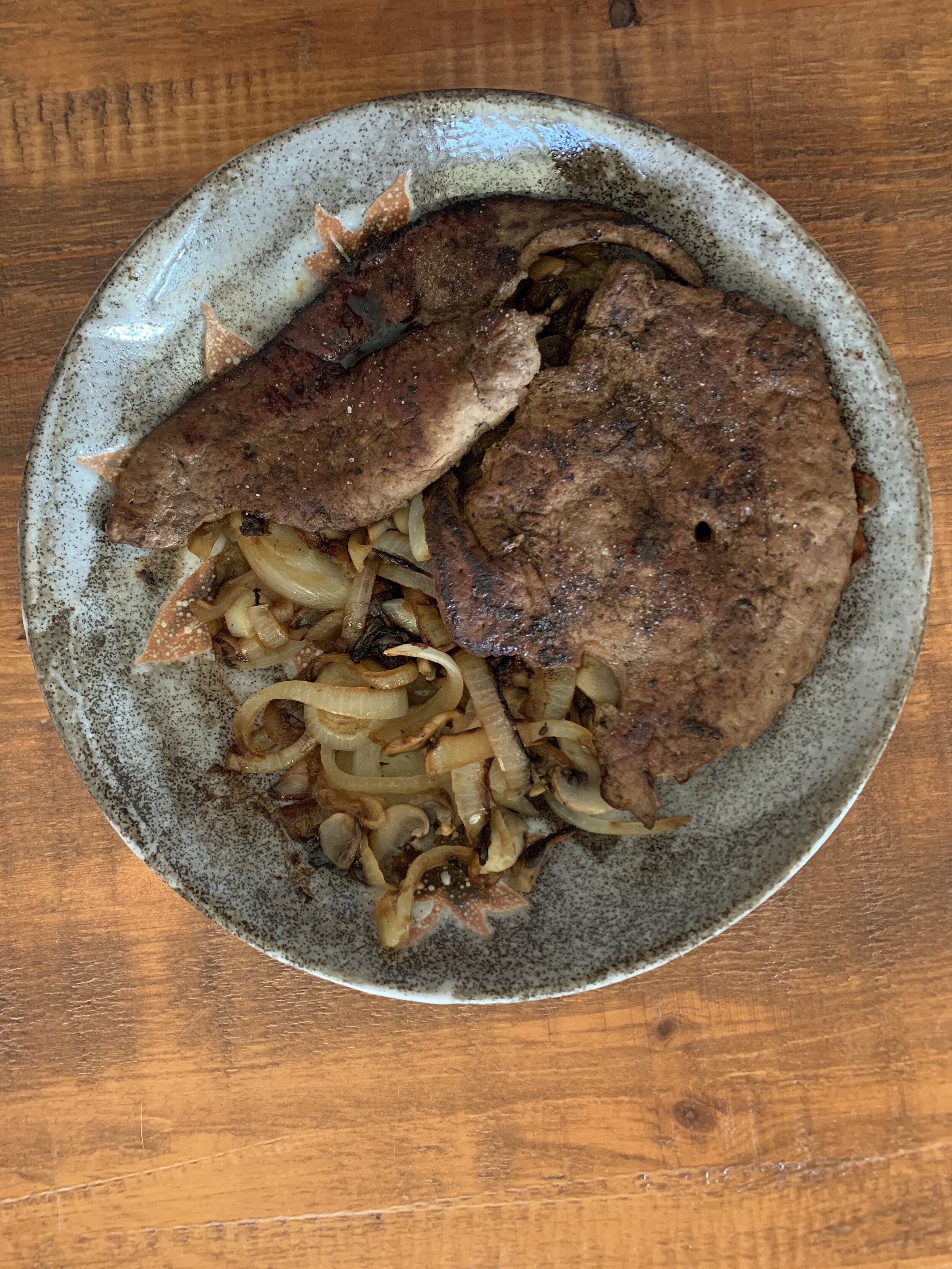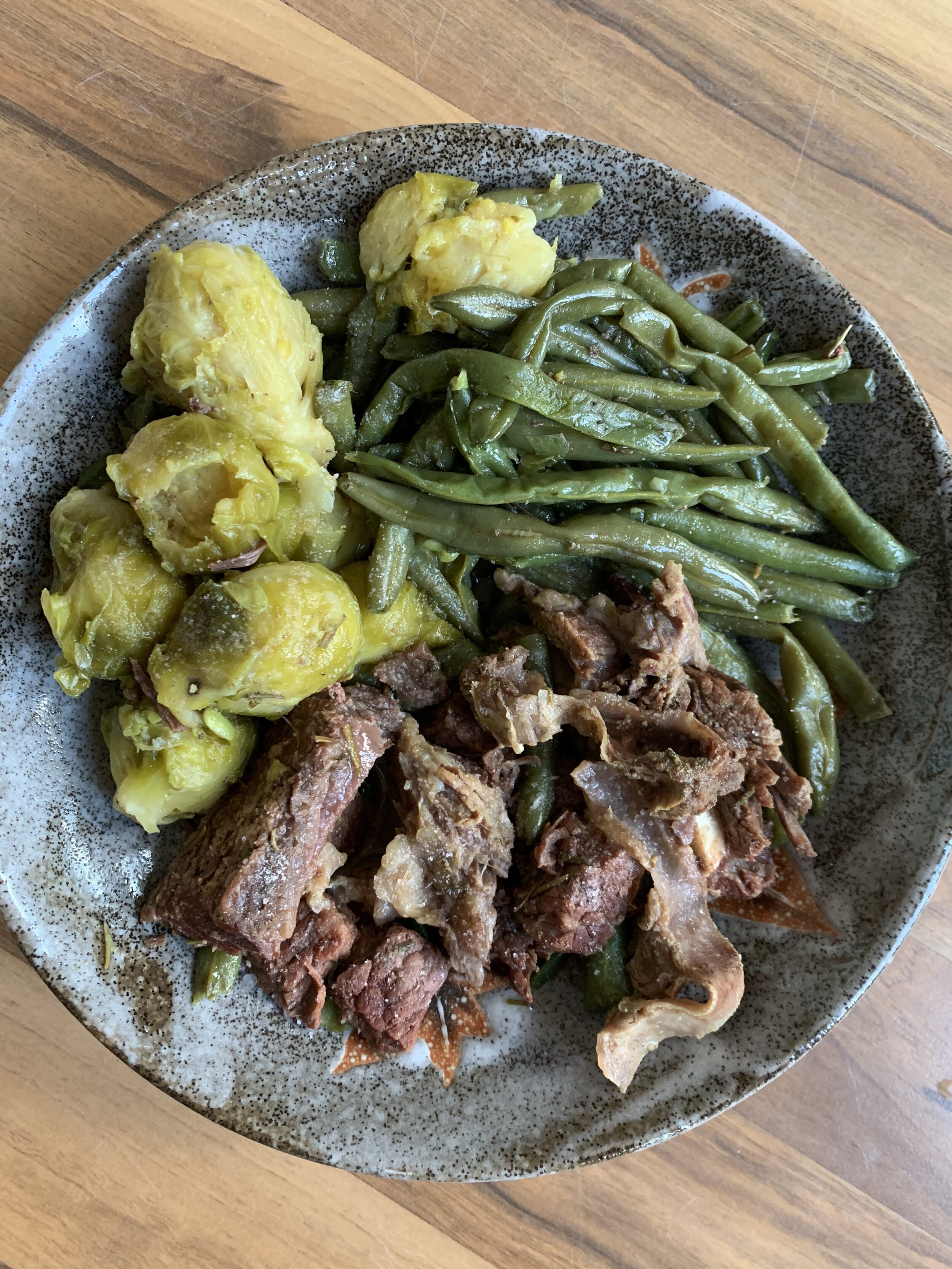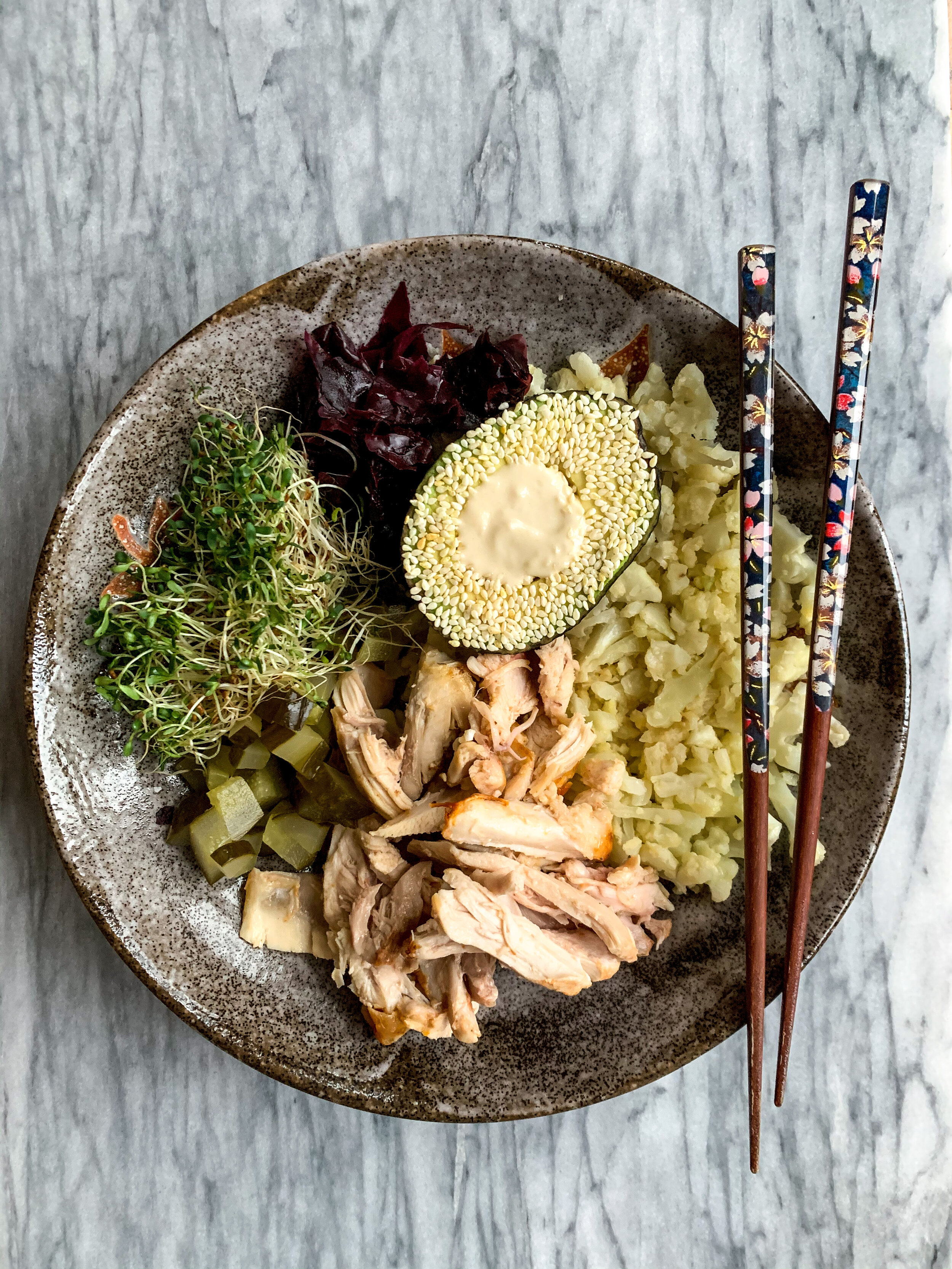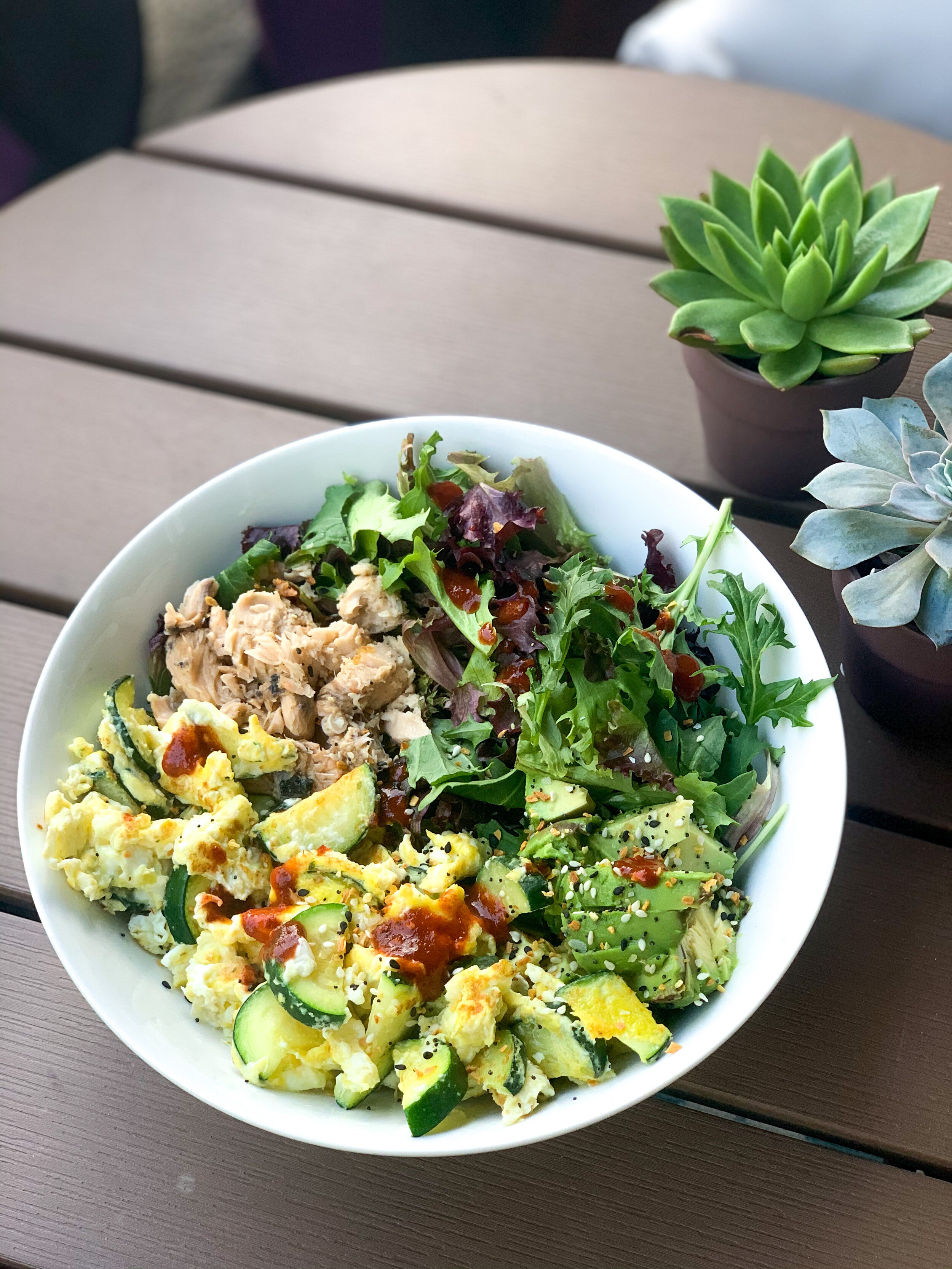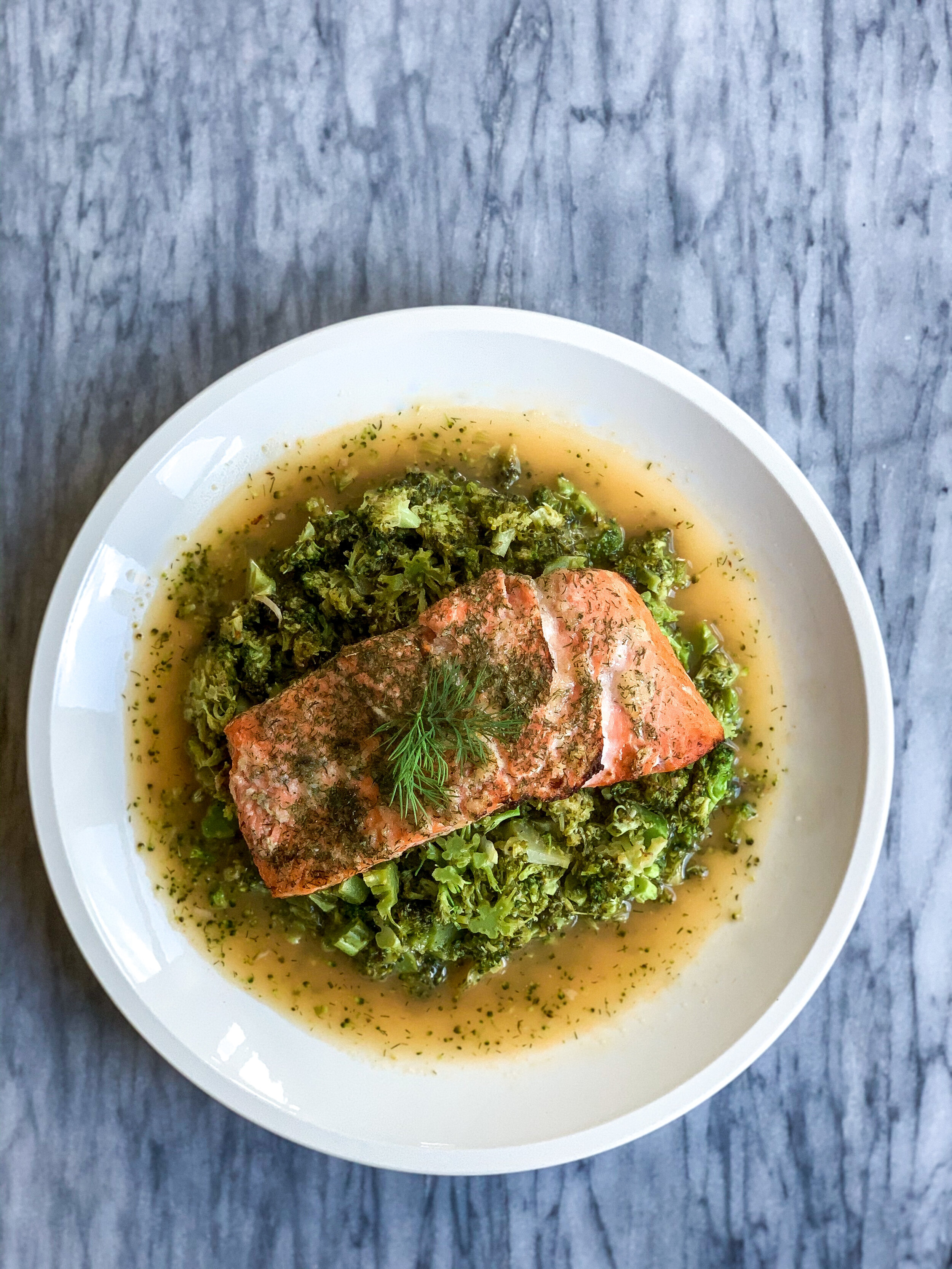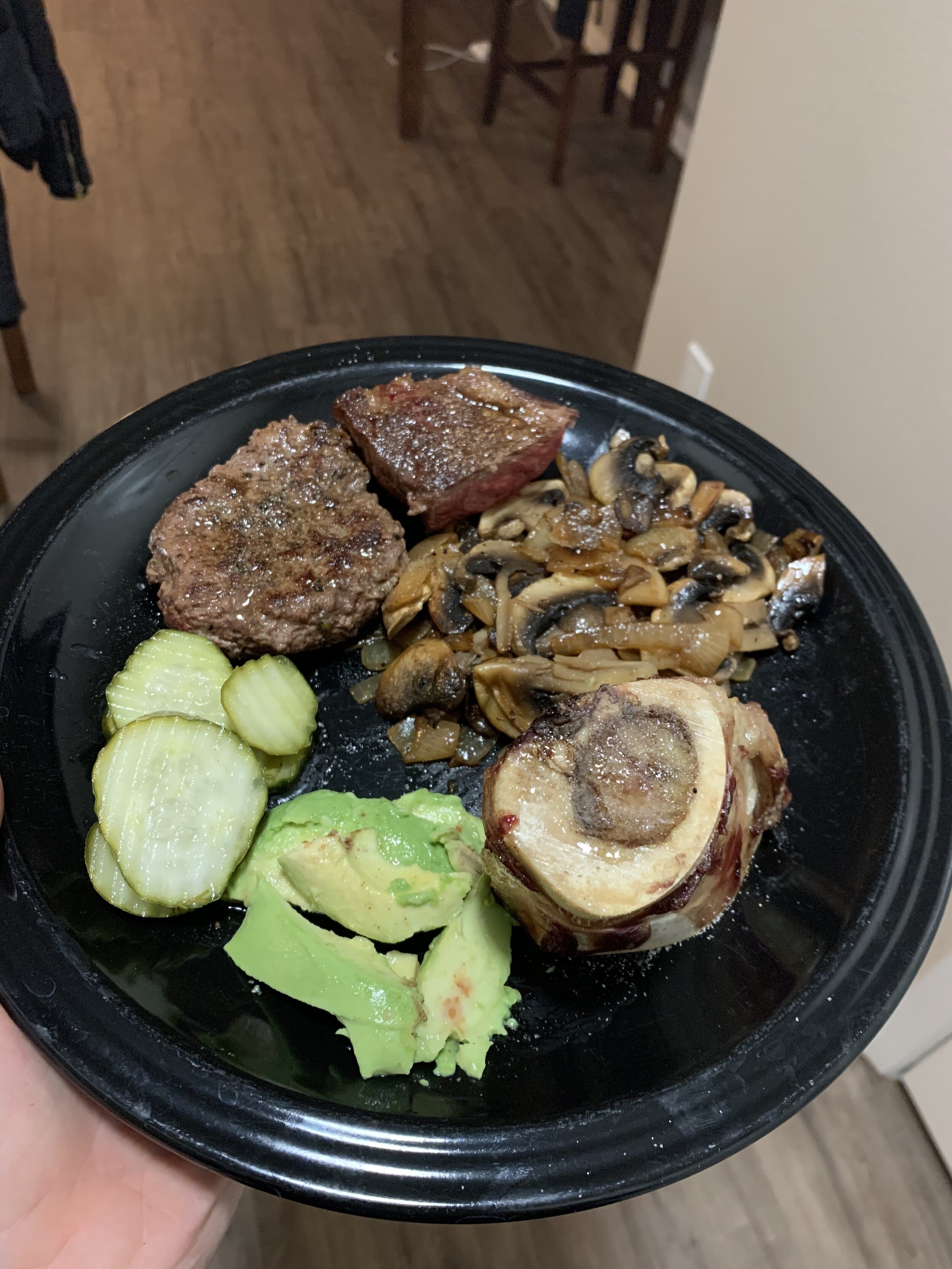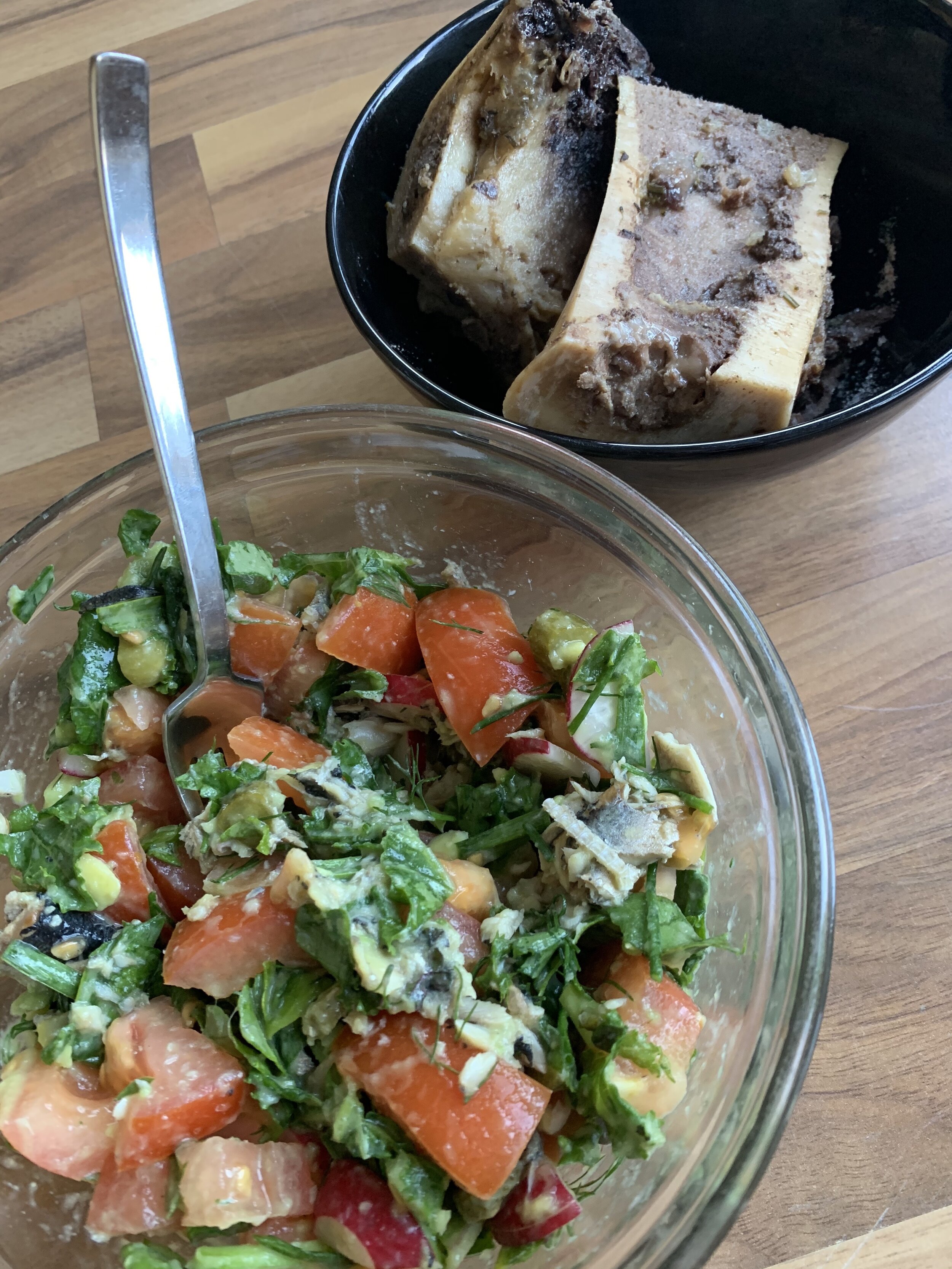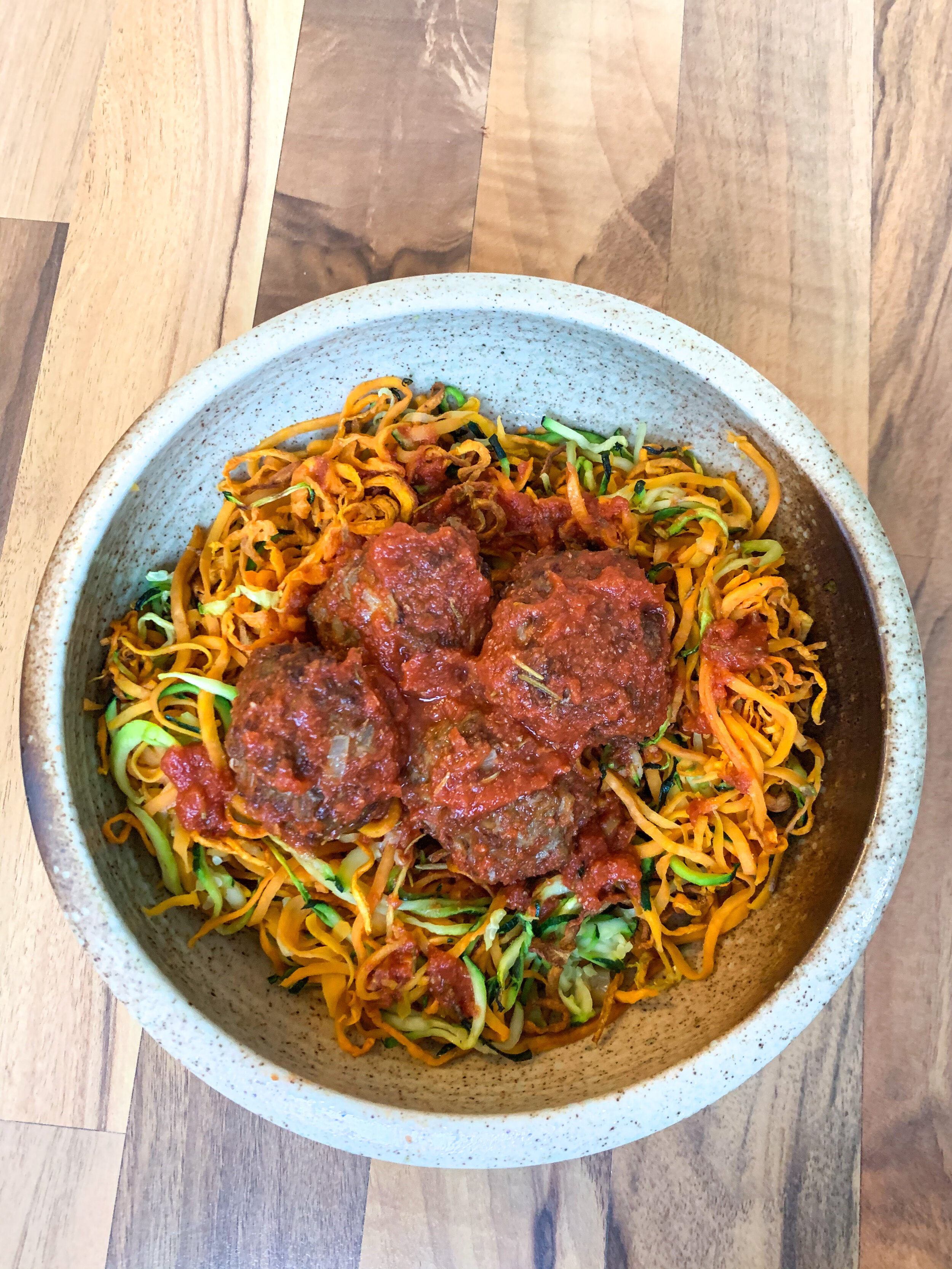My Diet (right now)
Others interpret the term "diet" as a method of losing weight. I use "diet" as a way to optimize my health. Truthfully, I get a little bugged when people say a diet "works" or doesn't "work" for them. What exactly does "work" mean? Most of the time, I will assume they either lost weight or they didn't, respectively.
I am not looking to lose weight. For me, if a diet "works" it means I have stable energy throughout the day, I’m sleeping well, I love the food that I eat, I am mentally sharp, I'm not bloated all the time, I am healthy, I have my blood sugar under control, my mood is not tied to food, and I can minimize meal frequency while maximizing satiety for the sake of productivity.
There are too many diets out there that require too much work. I can't imagine a world where everyone has the time to weigh out every morsel of food and calculate their calories and macros day in and day out. Maybe you do it for a month or so to learn the ropes, but thinking that you're going to do that for the rest of your life is unrealistic, in my opinion.
I feel I am at a point where I have optimized my food choices in a way that does not require me to count anything.
From a very young age, I've been interested in food, nutrition, and health. Throughout the last decade, I have followed a vegan diet, a raw vegan diet, a strict paleo diet, a vegan ketogenic diet, a carnivore diet, an animal-based ketogenic diet. I experiment with different diets so I can speak to them from experience but also to learn about my body. I will admit, I am a freakishly disciplined person when it comes to food, so no diet has ever been terribly unsustainable for me.
With that said, I have now landed on a style of eating that I believe I can and will follow for the rest of my life, based on the knowledge I have in this moment, and how I feel eating this way. I will always remain open minded and am willing to evolve, if I feel that’s best.
Following a diet for life doesn't fit the typical paradigm of a "diet," since the term diet often implies there is an end. But it's the way I consistently eat, and thus it's "my diet." The great thing about it is that there is no "on" or "off." It's just part of my life. If one day I eat nearly zero carbs, you could say I'm on a ketogenic diet, but if the next day I eat some sweet potatoes, then I'm not on a ketogenic diet, and you could find another label for that day, like paleo. My point is that there is no label for the way I eat, but there is a structure for choosing what I eat, and when I eat—the two work in synchrony.
Most of the time, when I am in a regular routine, I prefer to eat two meals a day with no snacks in between. My meals are pretty calorically dense, and keep me full until my next meal without making me tired or robbing me of my mental clarity.
Snacking is unproductive for me. It distracts me from my work, it makes me hungrier, it takes away from me enjoying my meals, and metabolically speaking, I am pretty convinced it is suboptimal (especially if you eat refined carbs).
For me, avoiding the urge to snack comes down to my food choices. Before I fully accepted meat in my diet, I snacked. Now that I eat meat and other animal foods, I do not feel the need to snack. My 30-day carnivore experiment taught me a lot about satiety, in a way I had never experienced before. Animal foods are nutrient dense, and they are also very satiating. Ironically, although they often contain more calories because they are typically higher in fat and fat is the most calorically dense macronutrient, I believe in the context of a whole foods diet they can inadvertently promote consuming less calories overall. For the record, I do not choose my foods based on calories, and I am not afraid of eating fat.
Also, I am simply sharing my experience. I am not saying my way is the best or that everyone will find success with the way I eat. I do think it is an optimal approach for weight loss based on my personal experience and feedback from others. I've actually had to add in more foods because I was maintaining a body fat percentage that was too low for me by eating this way, without feeling restricted in any way.
Here is what my diet mainly consists of to meet the standards that I previously mentioned in my definition of whether a diet "works."
Foods I often eat:
Grass-fed ruminant animals but I mostly eat beef and lamb
Pasture-raised eggs
Organic whole chickens
Organ meats such as liver, heart, and bone marrow, but I am open to all organ meats
Homemade bone broths
Animal fats: tallow, grass-fed butter/ghee
Other fats: coconut oil, avocado oil, extra-virgin olive oil
Fish and all other seafood (I eat whole cod liver weekly, and it's probably one of my favorite foods)
Lots of fibrous vegetables and other low-carb plants (e.g., zucchini, cabbage, broccoli, cauliflower, etc.)
Lettuces/greens
Avocados
Low- to no-sugar condiments: guy gone keto sauces (use code: ketokristi for 15% off), mustard, franks hot sauce, etc.
Foods I eat occasionally:
Starchy veg (tubers, squashes, root vegetables)
Nuts and seeds
Packaged low-carb products or low-carb baked goods
100% dark chocolate
Dairy
Legumes
Grains (rice, oats, quinoa, etc.)
What I generally stay away from:
Refined grains/flours (i.e., breads, pastas, cookies, crackers, pastries, cereals, etc.)
Refined sugars or their nutritive alternatives (e.g., agave, cane syrup, coconut sugar, etc.)
Vegetable/refined seed oils
Below are examples of what I typically eat.
My diet has no name. It’s a whole food based diet and there’s no "cheating" on the label I have given myself. I acknowledge that I am a bit of an outlier in that I do not really make any exceptions for junk foods (refined grains/flours, refined sugars, vegetable oils, or anything made from any of those ingredients), and these foods do not tempt me in any way. That's been my standard since I was about 16 years old. I quickly learned that I don't "need" bread, and you will get used to turning down cake, but I also realize there’s no harm in having these once in a while. What matters is what you do the majority of the time. I will have “healthy” packaged treats here and there, which are probably a better alternative to the "real" thing. Do I recommend you eat these things every day? No. And I would recommend you cut them out altogether if you are trying to beat sugar cravings and/or are pursuing weight loss until you feel you have a handle on things.
Anyway, onward.
Another major component of my diet doesn't involve food at all; instead, the abstinence of food.
Enter fasting.
I've always felt a little uncomfortable talking about fasting because it is so often associated with weight loss, and I don't want people to think I fast for weight loss. But I know enough about fasting to know that its applications extend far beyond body composition.
Fasting is a simple truth that can get along with any diet, and unless you are underweight, a child, or suffer from an eating disorder, almost everyone could benefit from some form of fasting. Personally, it's a practice that has added so much value to my life, and I'm pretty convinced that if you can't control what you eat, you should at least control when you eat. And if you can combine the two, kudos to you.
Fasting is a very vague term. One person could fast for 12-hours a day, another for 23-hours a day, and both could claim they are intermittent fasting, but I'd argue the two would produce very different outcomes. I can make a separate post on all the styles of fasting, but for now, I just want to talk about what I practice and what I believe is very practical for most people.
Consuming all of your calories for the day within a condensed time frame is the equivalent of time-restricted eating (TRE). As the name suggests, you are restricting the time for which you eat. This is the form of fasting I practice.
I eat within a 6-8-hour window each day. I eat my first meal around 12-2 pm, and my second meal around 6-8 pm. Two meals allow me to eat larger portion sizes and enjoy more delicious calorically dense foods, and on the flip side, the combination of fat and protein supports my ability to fast.
I do sometimes bend the rules and include medium-chain triglycerides (MCTs) in my coffee. As mentioned, I'm pretty lean... I also exercise a lot, and because I am a female, I have a monthly sign telling me how my body is responding to my lifestyle. A woman's menstrual cycle is a vital sign of health, and I have had to make some changes to support my lady parts, which includes calories. Here's the thing with MCTs, although they provide calories, I do no treat them as something that is "breaking" my fast; they are simply sparing my body fat during my fast. They are an easy, cheap, and reliable way to elevate blood ketones, mimicking what you can achieve with fasting. Plus, who doesn't love a creamy, frothy coffee, let's be real. If you are using TRE for fat loss, this probably isn't the best method for you unless it's the only way you can get through your fast, it helps you extend your fast, and supports an overall daily energy deficit.
Fasting to the point that you have successfully burned through your body's glucose stores means you are at the point for which your fat stores want to release their stored energy. This is when fatty acids are shuttled to the liver and undergo beta-oxidation to generate acetyl-CoA for ATP production, our cellular energy currency. If fatty acid oxidation is ramped up enough, molecules of acetyl-CoA accumulate and, instead of generating ATP, are used to make ketone bodies. Ketone bodies enter circulation and provide fuel for the body when glucose can't fit the bill, and the presence of ketone bodies in the blood is what defines ketosis. You can also achieve this by restricting carbohydrates, and if your diet promotes ketosis, you are following a ketogenic diet.
Ketosis is a topic beyond the scope of this post. However, it is part of the reason I believe fasting (and ketogenic diets) are so powerful and promote long-term health. If you can comfortably burn your own body fat, in other words, switch from a sugar burner to a fat burner, you are metabolically flexible. Metabolic flexibility essentially describes the ability to switch between fuel sources depending on availability, so if you eat some carbs, you'll burn sugar, but once that's exhausted, you can tap into your body fat. Most, if not all, chronic metabolic diseases are associated with metabolic inflexibility.
Personally, I prefer a low-carb diet, and the overlap between ketogenic diets and fasting complement each other nicely. I am not always in ketosis though. I fluctuate in and out by increasing carbs or protein some days, supporting my body's ability to use all fuels I throw at it. This is part of the reason I don’t say I’m on a ketogenic diet. I just eat a whole-foods diet, low in carbs, and as a result and with the help of fasting, I am often in ketosis.
I want to live a long and healthy life, and I strongly believe metabolic flexibility is the route we should all be taking and that the lifestyle I follow promotes this.
Here is a summary of my thoughts on dietary choices:
A healthy diet is less about plants vs animals or avoiding fats or carbs, than it is about processed foods vs whole foods.
Eat foods without ingredient lists; the food should be the ingredient.
Eat plants and animals in whatever ratio that makes you feel best. Don't eliminate one or the other indefinitely thinking one way is healthier because it's probably not. Animal foods are the most nutrient-dense foods available to us; don't corner yourself into a diet that makes you scared to eat them. There is a MASSIVE difference between being 100% vegan and being primarily plant-based, the former I'd argue is not nutritionally sound without supplementation. Cutting out all animal foods sounds like a bad plan to me.
Use protein to maximize satiety so you don’t overeat and to optimize body composition
Severely limit or completely avoid packaged/processed foods, refined grains, sugars, and refined vegetable oils, especially not combined and packaged into "food."
Be open minded to organ meats, and eat them often.
Don't eat all the time, try not to snack throughout the day, and use fasting how you see appropriate for you. Your body doesn't want to be digesting food all the time, give it a break, and let your body burn fat and ketones.
